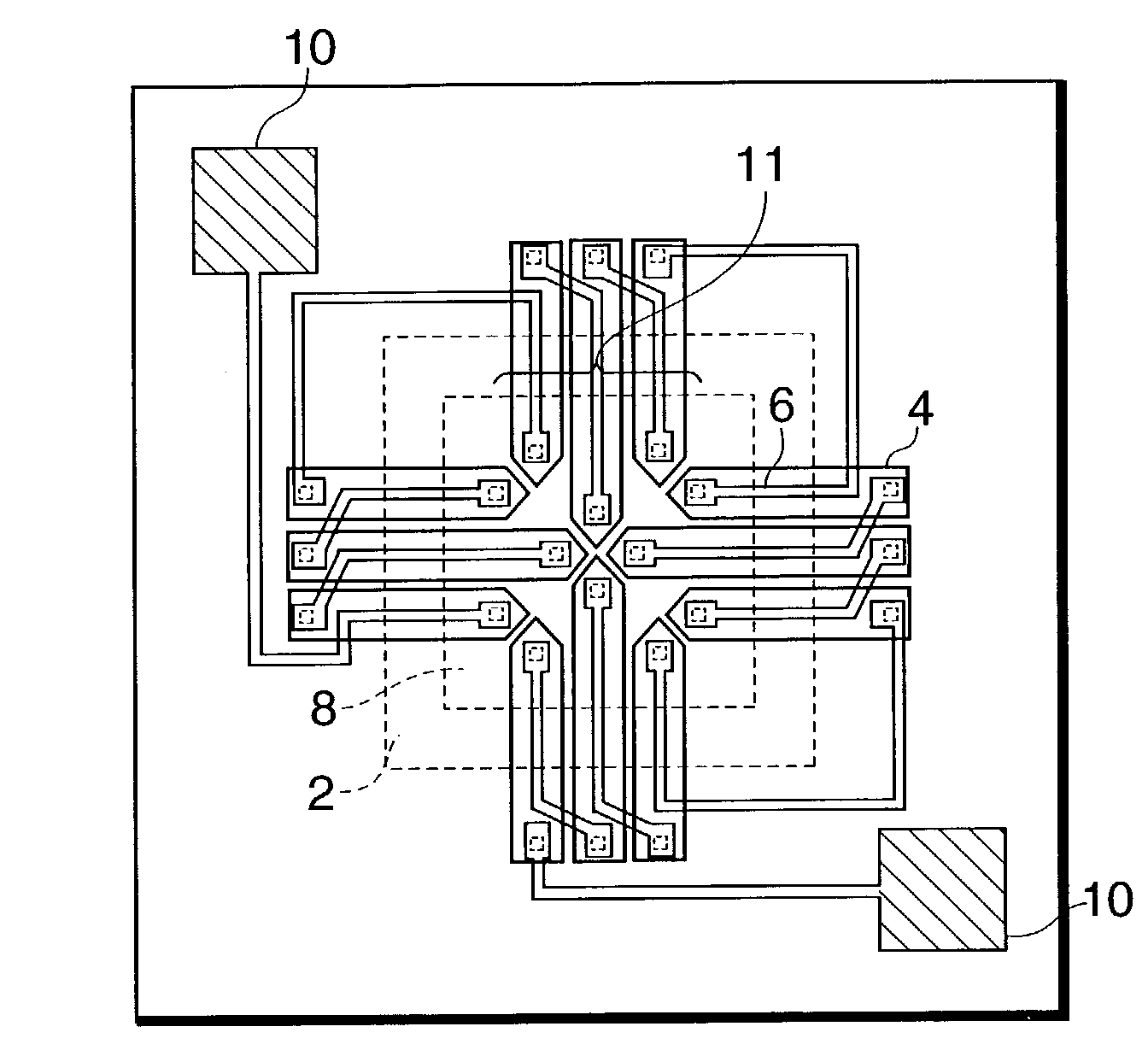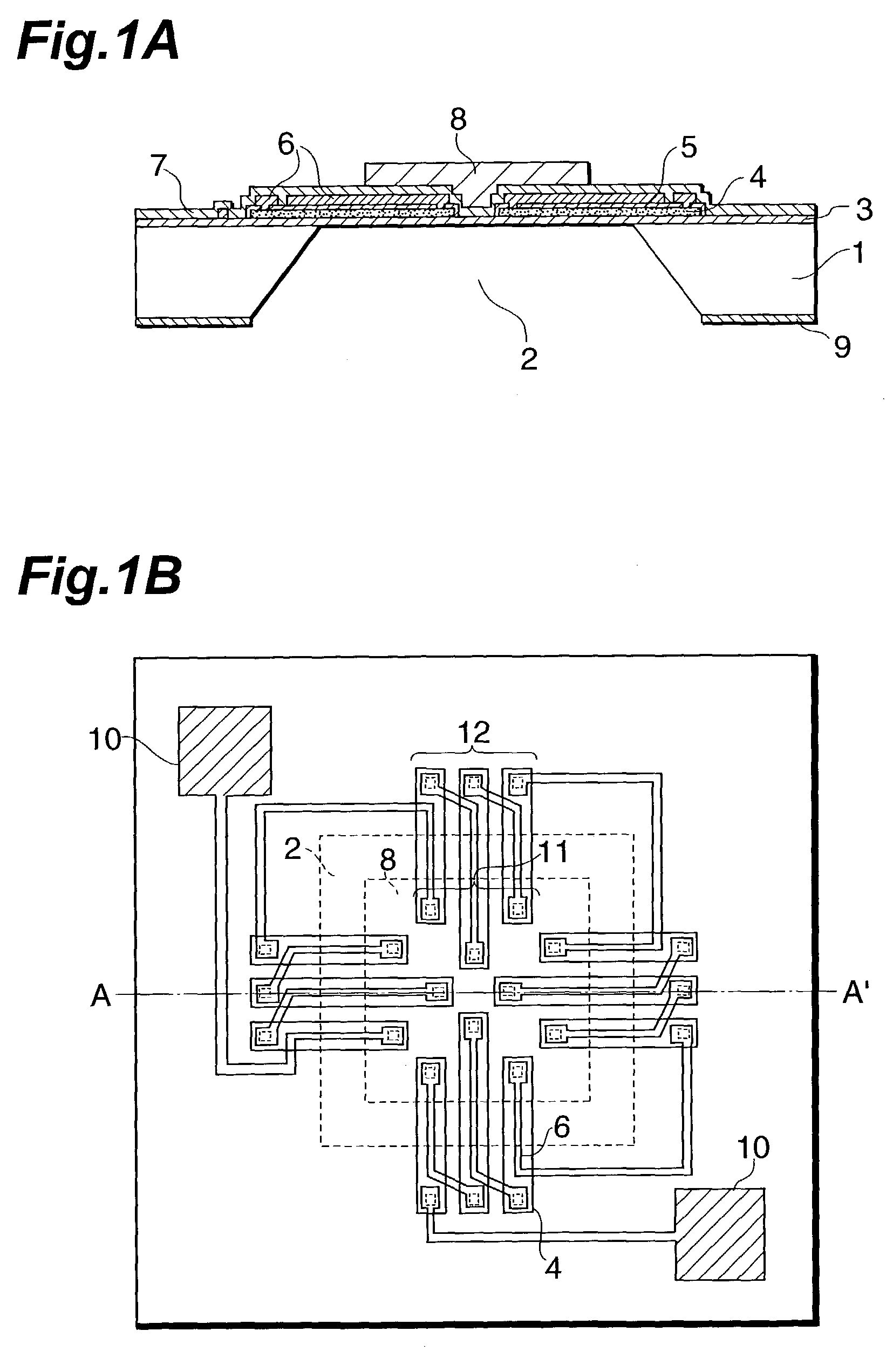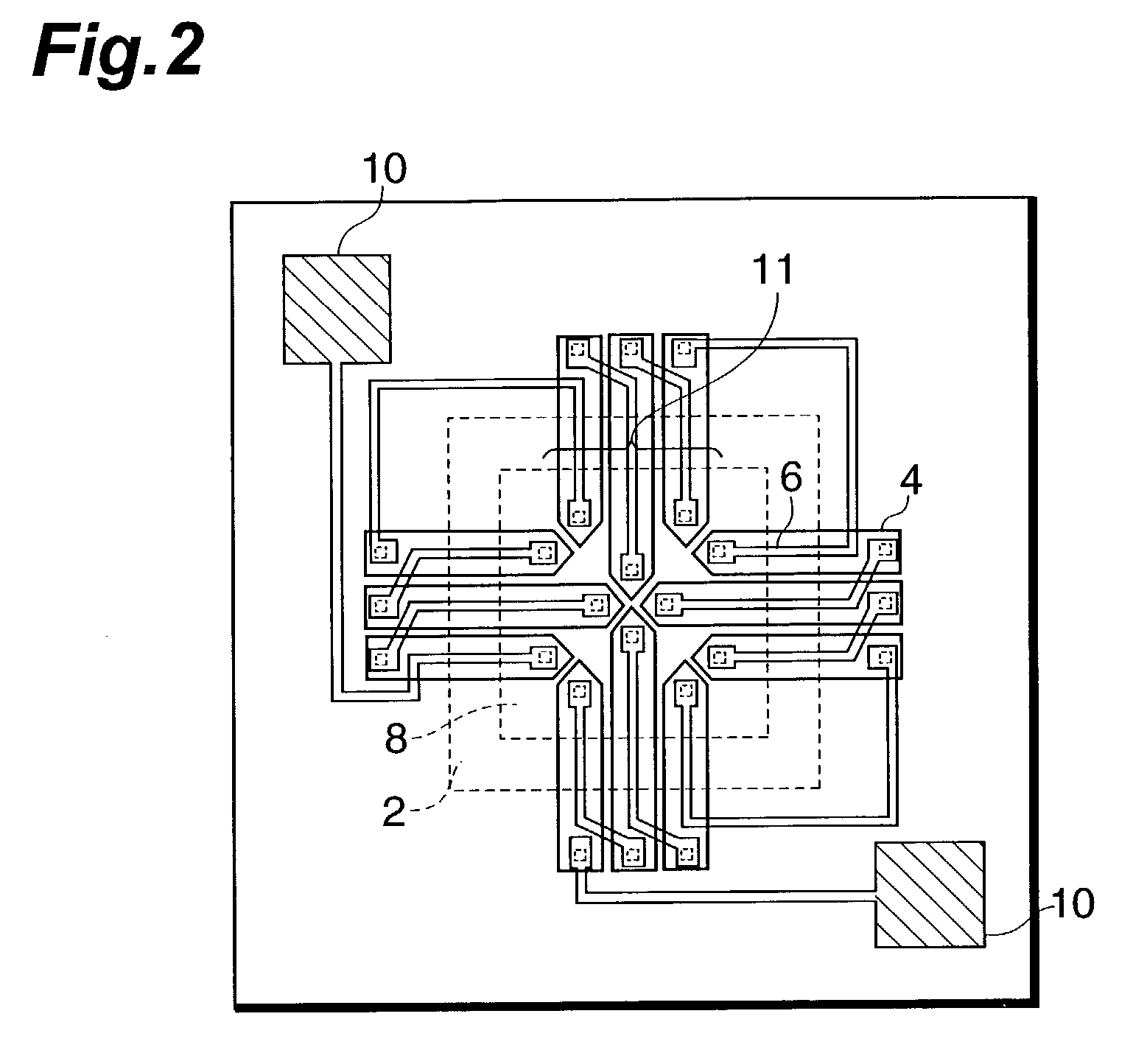Infrared sensor
- Summary
- Abstract
- Description
- Claims
- Application Information
AI Technical Summary
Benefits of technology
Problems solved by technology
Method used
Image
Examples
first embodiment
[0024]A section and thermopile patterns of an infrared sensor are shown in FIGS. 1A and 1B. FIG. 1A is a sectional view taken along A-A′ in FIG. 1B. As shown in FIG. 1A, the support member of a diaphragm structure has a silicon substrate 1 having a concavity 2, and a support film 3 which is supported by the silicon substrate 1. A polysilicon film 4 in which an n- or p-type impurity is doped at 1018 to 1020 cm−3 and an aluminum film 6 via an SiO2 film 5 serving as an insulating film are stacked on the support film 3. The polysilicon film 4 and aluminum film 6 are connected by an opening portion of the SiO2 film 5 to form a junction. The exposed surfaces of the support film 3 and thermocouples are coated with a passivation film 7 made of SiN. A infrared absorbing film 8 is formed on the passivation film 7 above the concavity 2.
[0025]Note that the passivation film 7 may be an insulating film such as an SiO2 or polyimide film. A blackened resin is used in the infrared absorbing film 8....
second embodiment
[0033]When a semiconductor material such as polysilicon is used as a thermoelectronic material, the resistance of the thermopile increases because of the high resistivity, and accordingly, noise increases. According to the infrared sensor of the second embodiment, since a polysilicon film 4 and an aluminum film 6 are stacked, the width of the polysilicon film 4 can be increased in each of thermocouples in number equal to or more than the prior art shown in FIG. 7. Hence, the resistance of the thermocouple can be reduced, and the S / N ratio can be increased by suppressing thermal noise. Alternatively, a design is also possible in which the number of thermocouples is increased (not shown) as compared to the prior art shown in FIG. 7 while keeping the resistance value of each thermocouple unchanged. With this design, since the sensitivity increases, and noise remains unchanged, the S / N ratio can be increased. In addition, when the distal end of the polysilicon film 4 above a concavity 2...
PUM
 Login to View More
Login to View More Abstract
Description
Claims
Application Information
 Login to View More
Login to View More - R&D
- Intellectual Property
- Life Sciences
- Materials
- Tech Scout
- Unparalleled Data Quality
- Higher Quality Content
- 60% Fewer Hallucinations
Browse by: Latest US Patents, China's latest patents, Technical Efficacy Thesaurus, Application Domain, Technology Topic, Popular Technical Reports.
© 2025 PatSnap. All rights reserved.Legal|Privacy policy|Modern Slavery Act Transparency Statement|Sitemap|About US| Contact US: help@patsnap.com



